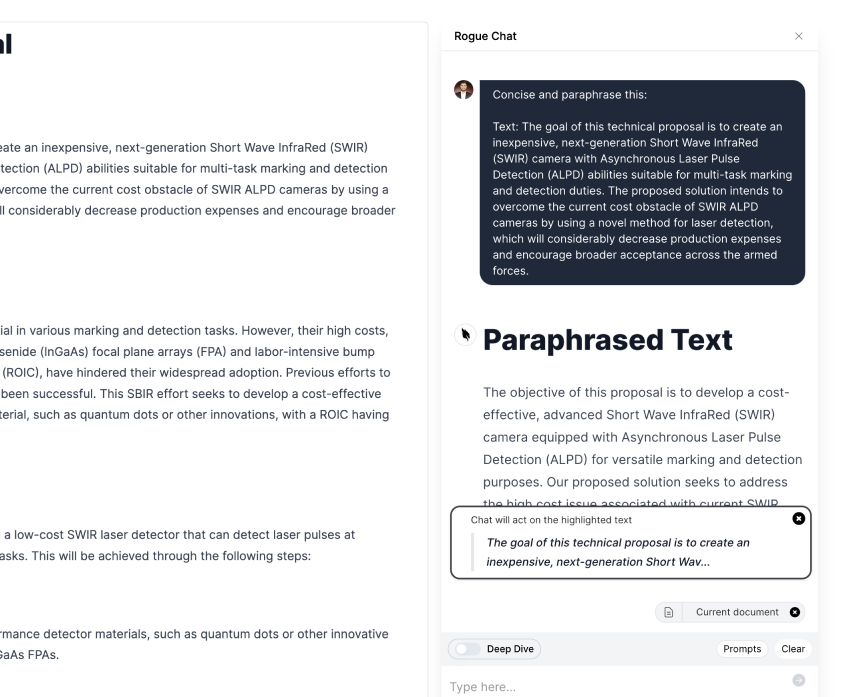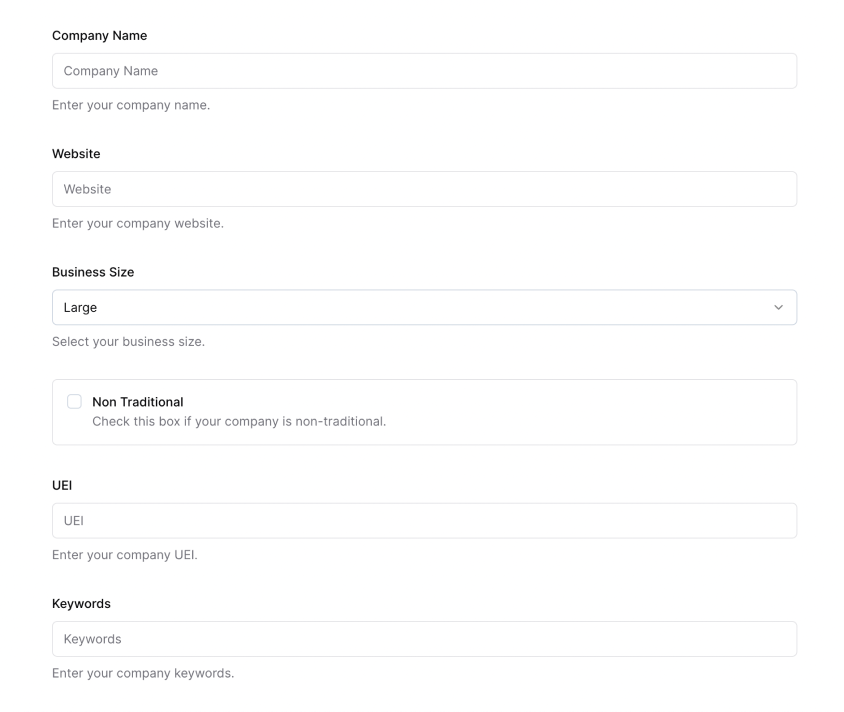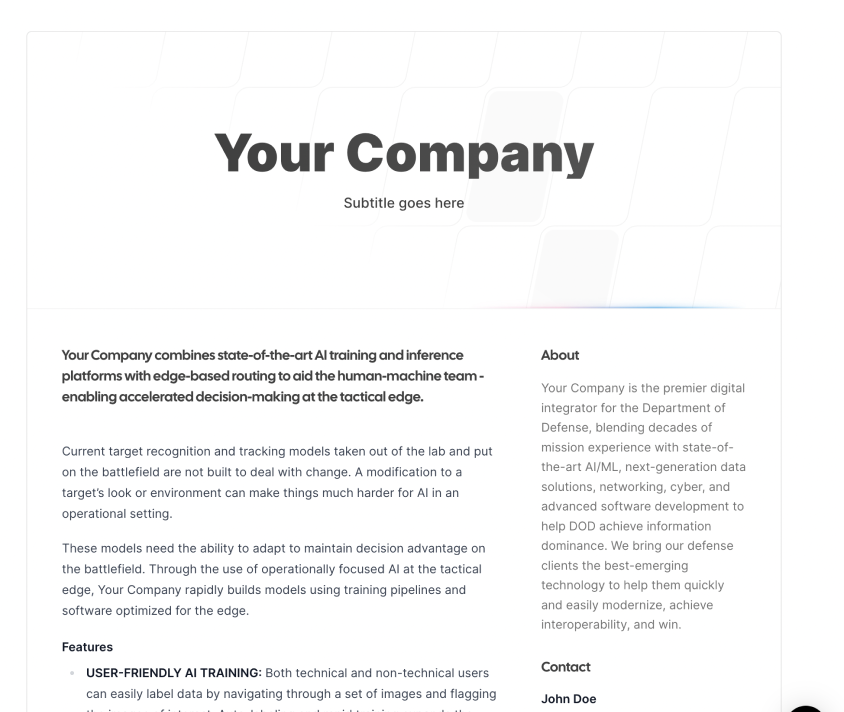
Navigating Diverse Government Contracting Markets: Federal, State, and Local Opportunities
Pro tips on finding, capturing, bidding, and winning State, Local, and Education (SLED) contracts.
Table of contents
Small business owners looking to expand their client base and revenue streams may want to explore the State, Local, and Education (SLED) government contracting opportunities in addition to the federal market. SLED Government contracts can be a lucrative source of revenue for small businesses. However, many small business owners are intimidated by the complexity and diversity of the SLED government procurement processes. Government agencies at the federal, state, and local levels have contracts for goods and services that they need to purchase from businesses like yours. The process of bidding on and winning a government contract can be daunting. Each level of government has its own set of rules and regulations that must be followed. It can be difficult to know where to start.
What is SLED Contracting?
SLED contracting stands for state, local, and education contracting. It is a type of procurement process that involves government entities at the state and local level as well as educational institutions. SLED contracts are different from federal contracts in many ways, including the procurement processes involved, regulations governing them, and requirements that must be met. One key difference between SLED contracting and federal contracting is the size of the market. While the federal government is responsible for procuring goods and services on a national scale, state and local governments procure goods and services within their respective jurisdictions. This means that while there may be fewer opportunities available through SLED contracts than through federal ones, they can still represent significant business opportunities for contractors.
Another difference between SLED contracting and federal contracting lies in the regulatory landscape surrounding each type of contract. Federal contracts are governed by strict regulations designed to ensure fair competition among bidders, prevent conflicts of interest or fraud in awarding contracts, protect sensitive information related to national security interests or intellectual property rights. SLED contractors face similar regulatory landscapes but with varying levels of complexity depending on jurisdictional differences across states or cities within those jurisdictions; therefore, it's essential to understand these nuances when bidding on specific projects.
SLED Contracting and Federal Contracting Similarities
When it comes to government contracting, businesses often think of the federal market as the primary opportunity. However, there are also significant opportunities available in state and local government contracting markets, commonly known as SLED (State, Local, and Education) contracting. While SLED contracting may differ from federal contracting in many ways - such as procurement procedures and regulations - there are still striking similarities between the two. One such similarity is with regards to capture planning. Both federal and SLED contracts require a well-planned approach that involves identifying potential opportunities early on and developing strategies for capturing them successfully. Capture planning, bid, and proposal fundamentals are critical to winning both federal and SLED contracts. These include understanding the customer's needs, identifying the competition, developing a win strategy, and crafting a compelling proposal.
Another important aspect to consider is leveraging SLED experience for federal success and vice versa. Understanding how these two markets overlap or intersect with each other can be a winning strategy. By capitalizing on existing knowledge and expertise in one market – whether it's through established relationships or past performance successes – businesses can build upon this foundation to establish themselves within a new target market. While there may be differences between Federal and SLED, companies should look for the numerous similarities that exist between these two spaces. Leveraging their experience with one can lead to success in pursuing opportunities within another governmental contract marketplace.
Finding SLED Contract Opportunities
Small business owners face a unique challenge when it comes to finding contract opportunities within the SLED sector. The SLED market is vast and diverse, with procurement processes varying significantly from state to state or even city to city. This can make it challenging for small businesses to navigate these markets successfully. Fortunately, there are several strategies that small business owners can use to find SLED contract opportunities. One of the most effective ways is by leveraging technology platforms specifically designed for this purpose. For instance websites like BidNet, GovWin, GovTribe, etc allow businesses to search for local and state contracts across multiple states.
Another helpful resource is networking events organized by government agencies in your area. Attending such events provides an excellent opportunity for small business owners to meet with key decision-makers and pitch their services directly. Industry associations also provide valuable insights into upcoming SLED contracting opportunities as well as trends in the industry at large. Therefore, joining relevant industry groups can help entrepreneurs stay informed about new RFPs or RFQs released in their area of expertise.
However, to effectively navigate this market, it is crucial to understand each State's procurement process. This means accessing information on various State procurement sites where you can search for state and local contract opportunities. These sites provide vital knowledge needed by entrepreneurs bidding on projects within those states' jurisdictions. By understanding each State's procurement process, businesses will have a better chance of successfully bidding on SLED contracts. This includes knowing how bids are evaluated, what criteria are used to award contracts, and any regulations or laws that need to be followed during the bidding process.
We included links to all of the state-level procurement sites at the end of this article.
How to Win State and Local Government Contracts
Winning state and local government contracts can be a great way for small businesses to grow their revenue, expand their customer base, and establish themselves as reliable suppliers in the marketplace. However, before diving into this highly competitive market, it’s important for entrepreneurs to do their research and understand which levels of government are most likely to buy from them. Winning state and local government contracts require a strategic approach. One of the keys to winning state and local government contracts is to understand the customer's needs. Research the agency you are bidding to understand their mission and goals, and tailor your proposal accordingly.
Another important factor is to differentiate yourself from the competition. Highlight your unique capabilities and past performance history in your proposal. This can help you stand out from other bidders. One key factor to consider is past purchasing history. By looking at previous procurement records of state and local agencies, business owners can get a sense of what goods or services these entities typically buy and how often they make purchases. This information can help companies tailor their offerings to meet specific needs or preferences of these organizations.
Another critical element is understanding the budget and long-term spending plans of SLED agencies. Knowing how much money they have available for contracting purposes over the next few years can give businesses an idea of how much potential work might be up for grabs. Additionally, by keeping tabs on agency priorities such as infrastructure development or environmental sustainability initiatives, entrepreneurs may be able to identify areas where they could provide value-added services that align with those goals. Collecting contact information for decision makers within target agencies is also vital when trying to win state or local contracts. Business owners should take time to network with current vendors who already have relationships with key personnel in these organizations or attend industry events where representatives from different SLED bodies will be present. If possible, collaborating with other firms through teaming agreements or qualifying for set-aside categories like those reserved exclusively for minority-owned businesses can also open significant opportunities.
Using SLED Success for Federal Success
When it comes to winning federal contracts, past performance is a critical factor that can make or break your proposal. The government wants to work with contractors who have a proven track record of success in delivering high-quality services and products on time and within budget. This is where SLED contracting experience can come in handy. If you have already worked on SLED contracts and delivered excellent results, you can leverage this past performance when bidding for some federal contracts, particularly GSA vehicles. By highlighting your successful projects from the state or local level, you demonstrate your ability to meet government requirements and deliver value for taxpayers' money.
Moreover, building a strong track record in SLED contracting has its own merits beyond winning federal contracts. It helps establish credibility as a reliable contractor with deep knowledge of specific markets or industries; it also opens more opportunities for subcontracting or teaming arrangements with other firms looking to expand their reach into those markets. Therefore, if you are interested in expanding your business into diverse government contracting markets - specifically at the federal level - do not underestimate the importance of building relationships and experience at the state and local levels first. Your success may depend on it!
Final Thoughts
Navigating the diverse government contracting markets of federal, state, and local opportunities can be challenging for small business owners. However, with the right knowledge and strategies, small businesses can successfully compete for government contracts. This is just a starting point for diving into the federal, state, and local government contracting markets. We hope these tips on finding SLED contract opportunities, strategies for winning state and local government contracts, and advice on leveraging SLED success for federal success helps your small business succeed in the SLED contracting marketplace.
List of State Procurement Sites
- Alabama - https://purchasing.alabama.gov/
- Alaska - https://oppm.doa.alaska.gov/
- Arizona - https://spo.az.gov/
- Arkansas - https://www.transform.ar.gov/procurement/
- California - https://www.dgs.ca.gov/PD
- Colorado - https://osc.colorado.gov/spco
- Connecticut - https://portal.ct.gov/DAS/CTSource/CTSource
- Delaware - https://mymarketplace.delaware.gov/
- Florida - https://www.dms.myflorida.com/business_operations/state_purchasing
- Georgia - https://ssl.doas.state.ga.us/gpr/
- Hawaii - https://spo.hawaii.gov/
- Idaho - https://purchasing.idaho.gov/
- Illinois - https://www.bidbuy.illinois.gov/bso/
- Indiana - https://www.in.gov/idoa/procurement/
- Iowa - https://das.iowa.gov/procurement
- Kansas - https://admin.ks.gov/offices/procurement-contracts
- Kentucky - https://finance.ky.gov/eProcurement/Pages/default.aspx
- Louisiana - https://www.doa.la.gov/doa/osp/
- Maine - http://www.maine.gov/dafs/bbm/procurementservices/home
- Maryland - https://procurement.maryland.gov/
- Massachusetts - https://www.mass.gov/sell-to-the-state
- Michigan - https://www.michigan.gov/dtmb/procurement
- Minnesota - https://mn.gov/admin/osp/
- Mississippi - https://www.procurement.msstate.edu/
- Missouri - https://purch.oa.mo.gov/
- Montana - https://spb.mt.gov/
- Nebraska - https://das.nebraska.gov/materiel/sites/purchasing.html
- Nevada - https://purchasing.nv.gov/
- New Hampshire - https://www.das.nh.gov/purchasing/index.aspx
- New Jersey - https://www.nj.gov/treasury/purchase/
- New Mexico - https://www.generalservices.state.nm.us/state-purchasing/
- New York - https://ogs.ny.gov/procurement
- North Carolina - https://eprocurement.nc.gov/
- North Dakota - https://www.omb.nd.gov/doing-business-state/procurement
- Ohio - https://procure.ohio.gov/
- Oklahoma - https://oklahoma.gov/omes/services/purchasing.html
- Oregon - https://procurement.oregon.gov/
- Pennsylvania - https://www.dgs.pa.gov/Materials-Services-Procurement/Pages/default.aspx
- Rhode Island - https://ridop.ri.gov/
- South Carolina - https://procurement.sc.gov/
- South Dakota - https://boa.sd.gov/central-services/procurement-management/default.aspx
- Tennessee - https://www.tn.gov/generalservices/procurement.html
- Texas - https://comptroller.texas.gov/purchasing/
- Utah - https://purchasing.utah.gov/
- Vermont - http://bgs.vermont.gov/purchasing
- Virginia - https://eva.virginia.gov/
- Washington - https://des.wa.gov/sell/bid-opportunities
- West Virginia - https://www.state.wv.us/admin/purchase/
- Wisconsin - https://doa.wi.gov/Pages/StateEmployees/Procurement.aspx
- Wyoming - https://ai.wyo.gov/divisions/general-services/purchasing
Sign up for Rogue today!
Get started with Rogue and experience the best proposal writing tool in the industry.



